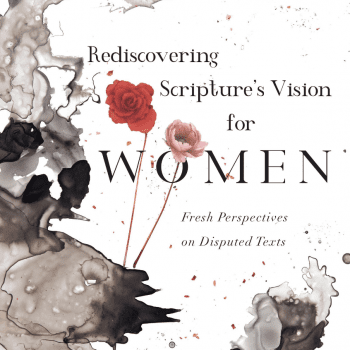Bible Verses Mis-read
The Book of Genesis
Filled with the stories of creation and the founding fathers of Israel, this book a wonderful source of background information for Christians. It explains the context in which Jesus appeared—who the Jews were, and how they ended up in the land of Israel—for starters. But the original author wrote the book in order to educate the newly-freed children of Israel, who had been raised as slaves in Egypt, in their national history. That the story goes all the way back to creation: “In the beginning, God created the heavens and the earth” (Gen. 1:1). This declaration would have startled the people, who were surrounded by the worship of many Egyptian gods and goddesses. By stating that God created the sun and moon, the author rejected Ra and Khonsu, the Egyptian gods of the sun and moon. Instead of many gods related to all aspects of creation, Genesis declared that Yahweh, also called Elohim, was God over all creation. This would have been revolutionary.
And today, instead of glazing over when we read “God created…” throughout Genesis 1, we do well to stop on each statement and marvel over his sovereign, immutable, life-giving creative power. There is only one God, and he loves his children.
The Book of James
This letter was written by the leader of the original Jerusalem church, who happened also to be Jesus’s half-brother. He wrote (1:1) to the Jewish Christians who had been dispersed, or driven out of Jerusalem by persecution. So his audience was made of Jesus-followers, believers committed to Christ. When we read his letter now, and see the many exhortations to good behavior, we should remember the audience and not expect unbelievers to conform to those standards. They don’t have the ability to do so! On the other hand, believers should increasingly look like the mature believer (1:4), and the church has every right to point one another toward righteousness and away from evil.
Phil 4:13 “I can do all things through Christ who strengthens me.”
We tend to make scripture about us, when it’s really about God. Paul, the writer of this letter, is sitting in prison reflecting on how God has enabled him to find contentment in every circumstance, “whether well fed or hungry, whether living in plenty or in want” (v 12). This verse does not promise us victory in a sports game, or the achievement of a dream, or the ability to endure every hardship. We may enjoy those victories, but not because of Paul’s words here. In context, he’s talking about a supernatural ability to endure suffering for Christ’s sake, because Christ provides the strength to do it. Any attempt to use this verse in a simplified manner dilutes the power of Paul’s meaning.
Jer 29:11 “For I know the plans that I have for you, says the Lord, plans for good and not for harm, to give you a hope and a future…”
The ‘you’ is collective, not singular. The prophet Jeremiah, speaking on God’s behalf, is talking to a group of people, actually the nation of Israel who were IN CAPTIVITY at the time. Sound like a “plan for good”? So, first, context. Second, audience. Not you and me individually in America. What this passage says about God is always true—he is good, he loves his people, he does have good plans full of hope. But this verse is not promising each individual a life free of pain and hardship, or that everything will work out well. We use it wrongly when we try to apply it to our individual hardships, and in doing so many people turn away from God when their hardship doesn’t dissolve.
The “you” in “You Say” does matter. The general populace can substitute anyone they wish to fill that role, but the rest of the song will prove false to them. A husband, wife, parent, friend who says “I am loved… strong… held…” gives momentary comfort, for they are all fallible, mortal beings who will fail. But when Lauren’s original meaning is understood, that God Himself loves us, strengthens us, holds us, and claims us as his, the song gives us the gospel.
Stick with the author’s intent, no matter what you read, to find the words’ true and deepest meaning.












